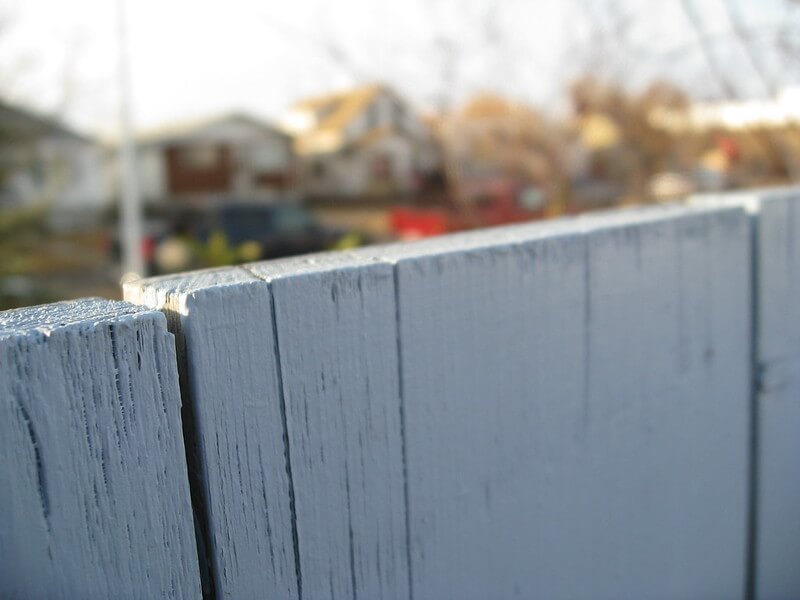Which is the best wood to use for an outdoor fence? The right wood will have the following properties;
- Durable
- Weather-resistant
- Decay resistant
- Resistant to insect attacks
- Low-maintenance.
Below are five types of wood you can use for your outdoor fence project.
Best Wood for Outdoor Fence
Redwood
| Property | Comment |
| Durability | Very durable |
| Weather resistance | High |
| Decay resistance | High |
| Resistance to insect attacks | High |
| Maintenance requirement | Minimal |
A redwood fence is very lovely, thanks to the wood’s rich natural color. The wood contains more natural oils than its softwood counterparts. The oils make it very resistant to outdoor weather and fungal decay. It’s also very resistant to insect infestations.
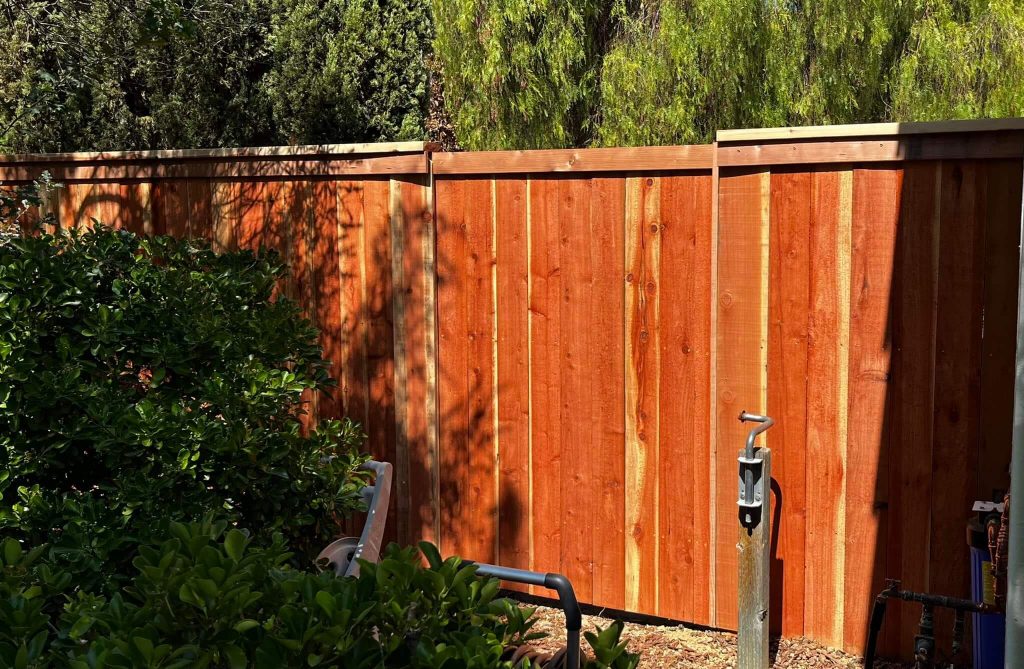
Its natural resistance to insect attacks and decay makes this wood more durable than other softwoods. A redwood fence can last for 30 years with little or no maintenance. It can survive outdoor elements well even without a finish. You only need to seal the wood to prevent it from fading.
Redwood is a softwood and thus easy to work with. It doesn’t even require sanding, which is a bonus if you prefer a fence that has a rustic look.
It’s more costly than other softwoods such as cedar. However, it can last for decades with little or no maintenance. So, you might save more money in the long run.
Cypress
| Property | Comment |
| Durability | Very durable |
| Weather resistance | High |
| Decay resistance | High |
| Resistance to insect attacks | High |
| Maintenance requirement | Minimal |
Cypress contains a preservative known as cypressene, which makes the wood resistant to water and fungal decay. It is also highly resistant to insects like termites and carpenter bees.
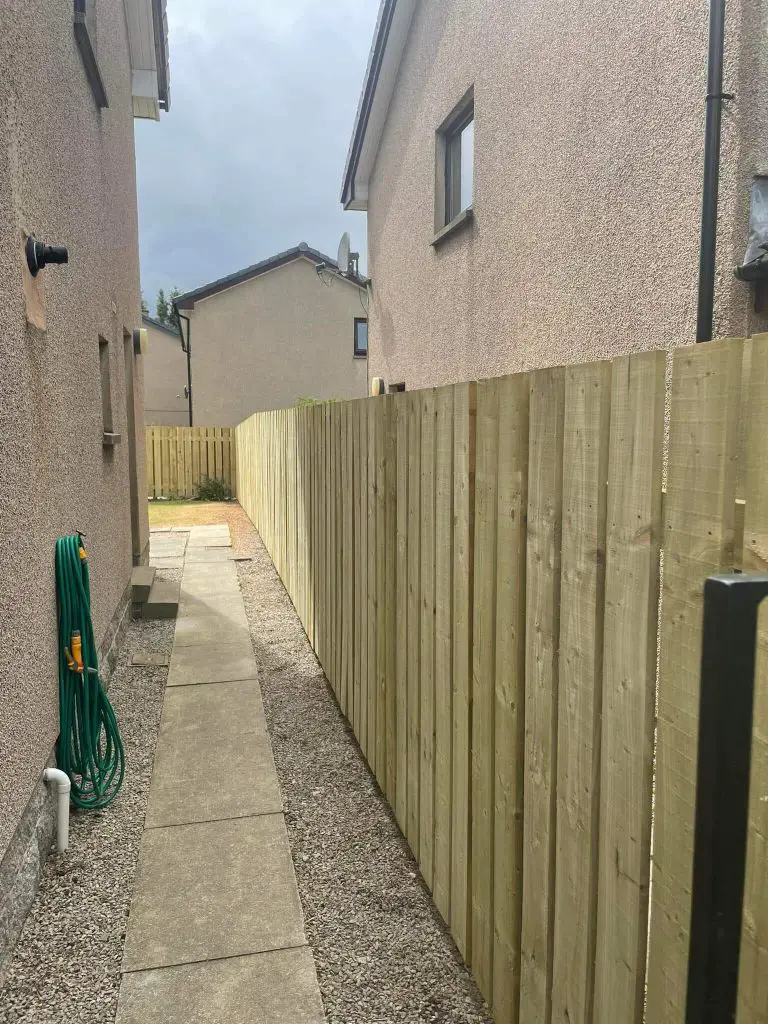
Although cypress is a softwood, it displays some characteristics similar to hardwoods. For instance, it has tightly-packed growth rings that make the wood less prone to shrinkage and warping.
This softwood is not only durable, but it’s also appealing to the eye too. The pecky cypress, for example, is created by a fungus. The fungus forms a pattern of pockets that make this wood extremely beautiful.
Cypress has minimal maintenance requirements. Sealing or staining your fence are the only two activities necessary to extend its lifespan. Cypress seals and stains better than its resinous counterparts.
Cedar
| Property | Comment |
| Durability | Durable |
| Weather resistance | High |
| Decay resistance | High |
| Resistance to insect attacks | High |
| Maintenance requirement | Minimal |
A well-maintained cedar fence can serve you for more than 30 years. Its durability can be attributed to the natural oils found in wood. The oils make cedar highly resistant to insect infestation and fungal decay.
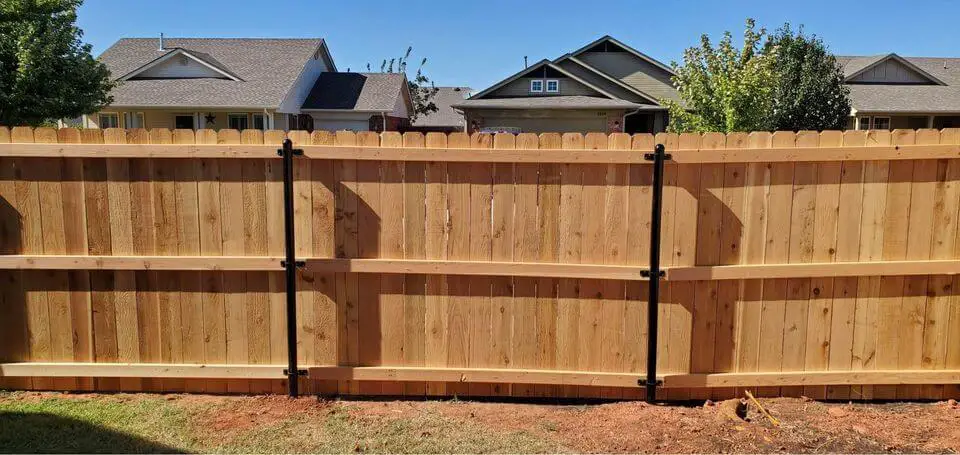
Cedar can withstand outdoor elements for a long time and still retain its structural integrity. Due to its natural resistance to weather and insect infestation, cedar is very economical. You can install it without treating it.
Cedar is light in weight and thus easy to work with. It’s also very versatile and can be used to achieve numerous fence designs. It is mainly used for board-on-board fences, picket fences, and lattice fences.
Cedar’s color and grain pattern make it extremely beautiful. If you leave your fence unfinished, its reddish color will gradually weather into a beautiful gray color. However, you can finish your fence using stain if you want it to look natural.
Cedar finishes well, which is a bonus if you wish to have a fence that matches your home’s exterior.
Douglas Fir
| Property | Comment |
| Durability | Durable |
| Weather resistance | Good |
| Decay resistance | Good |
| Resistance to insect attacks | Good |
| Maintenance requirement | Minimal |
The Douglas fir is popular for its dimensional stability. The wood expands and contracts evenly, making it less prone to warping and buckling.
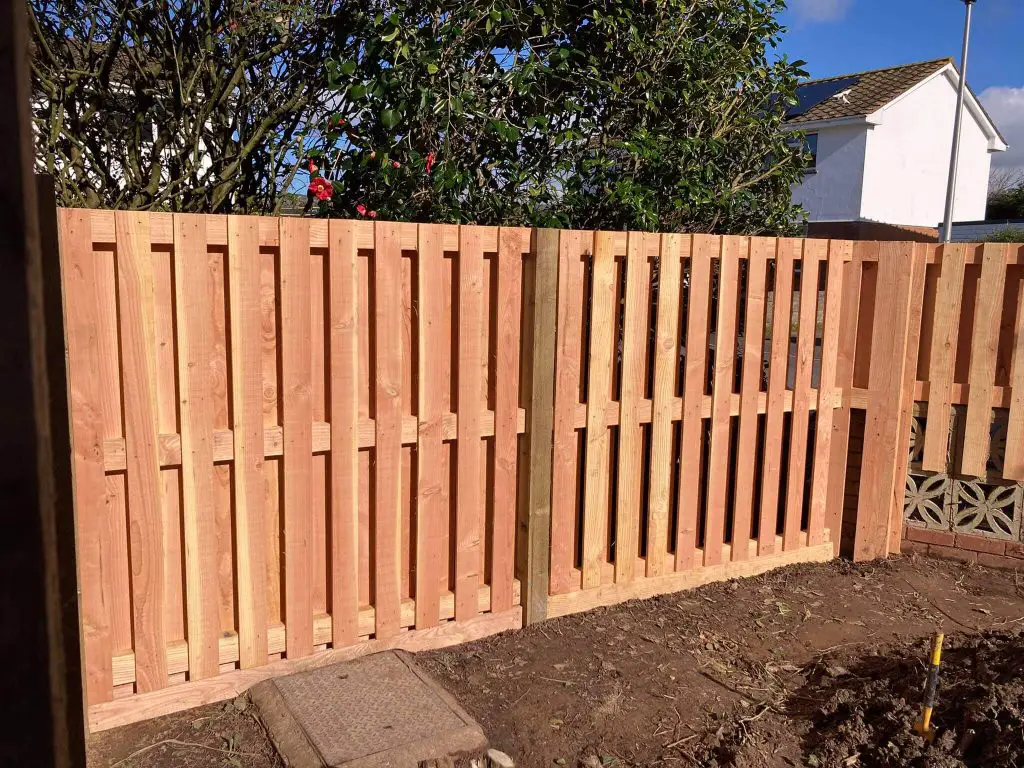
Its durability makes it an ideal material for outdoor fences. The wood is naturally resistant to fungal decay and insect infestation.
Douglas fir is a softwood that’s easy to work with. You can easily cut and shape it into fence posts or planks. This stable wood bores well and takes holes without cracking or splitting.
Like cedar, Douglas fir has few maintenance requirements. An untreated Douglas fir fence can last for 10-15 years. However, treating or finishing the wood can extend its lifespan to 30 years.
Pressure Treated Pine
| Property | Comment |
| Durability | Moderately durable |
| Weather resistance | Moderate |
| Decay resistance | Good |
| Resistance to insect attacks | Good |
| Maintenance requirement | High |
Traditional pressure-treated wood had a dark green tint. Today, you can find pine treated using the Micronized Copper Quaternary in the markets. It is safer and looks more natural than the traditional treated pine.
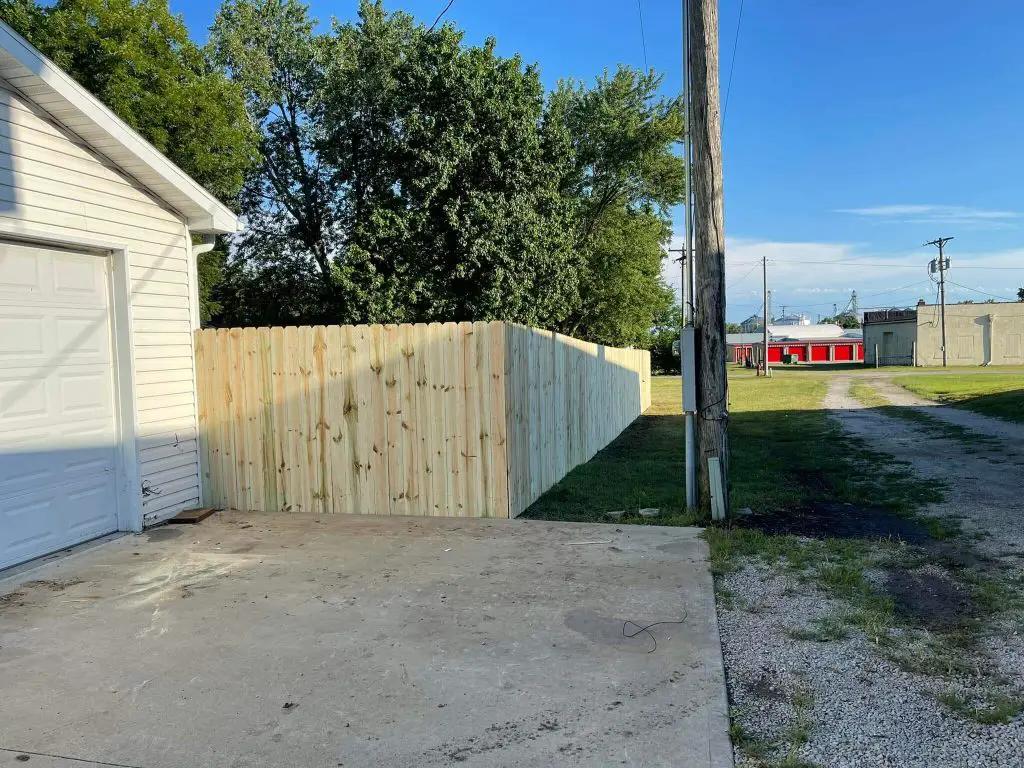
Pressure-treated pine has good moisture resistance. It is the ideal wood to use if you live in an area with high humidity.
The chemicals used to treat this wood repel insects such as bugs and termites. Also, unlike cedar which tends to rot when in contact with soil, pressure-treated pine has good soil resisting properties. Thus, it’s ideal for making fence posts.
This wood is moderately durable, its fence can last for around 10-15 years.
The workability of pressure-treated pine is poor due to the wood’s high density. The chemicals used in treating the wood also make it slightly difficult to stain it.
While this wood may be cheaper than the other four kinds of wood mentioned above, it has high maintenance requirements. First, the wood reacts with metals such as iron. It requires galvanized nails, which will not rust or stain the fence pickets.
It also requires weatherproofing three months after installation. This helps to prevent the wood from absorbing the moisture that would otherwise cause it to warp or shrink. You must also stain the wood to protect it from fading. Additionally, you’ll be required to re-stain or refinish the wood every year.
Best woods for fence: Conclusion
The ideal wood for an outdoor fence is resistant to fungal decay, insect attacks, and outdoor weather elements. It should be durable and have minimal maintenance requirements. The best types of wood for this kind of project include redwood, cypress, cedar, Douglas fir, and pressure-treated pine.
